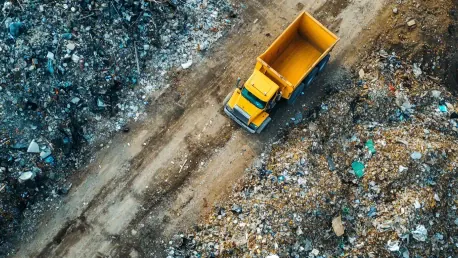How Will Honeywell and Repsol Transform Waste Into Renewable Fuels?
Honeywell, a renowned US technology firm, has embarked on a groundbreaking partnership with Repsol, a distinguished Spanish multi-energy group, aiming to revolutionize biofuel development and integrate circular materials at Repsol’s facilities. This strategic collaboration, centered on scaling up Honeywell’s proprietary technologies, is designed to convert various types of waste—ranging from fats, oils, and greases to biomass and solids—into valuable chemicals and renewable fuels. By leveraging existing refinery assets, this initiative aims to produce a variety of biofuels, including sustainable aviation fuel (SAF) and renewable diesel, thereby promoting environmental stewardship and reducing carbon footprints. Moreover, Repsol intends to explore Honeywell’s technology for converting waste plastics into recycled polymer feedstock, which can be used in the manufacturing of new plastics.
The partnership between Honeywell and Repsol represents a significant stride in Repsol’s steadfast commitment to achieving net zero emissions by 2050. Utilizing Honeywell’s cutting-edge technologies, the companies plan to efficiently transform waste materials into renewable energy sources. This collaborative effort is expected to play a pivotal role in advancing circular economy practices within the energy sector. One notable aspect of this partnership is its focus on sustainable aviation fuel (SAF), which is increasingly being recognized as a critical component in reducing emissions from the aviation industry. Additionally, the initiative to produce renewable diesel from waste materials underscores the potential for existing refineries to evolve into versatile biofuel production facilities, thus enhancing the sustainability of the energy landscape.
Prior Collaborations and Industry Trends
Honeywell, a well-known US technology firm, has entered into a groundbreaking partnership with Repsol, a prominent Spanish multi-energy group. This alliance aims to revolutionize biofuel development and integrate circular materials at Repsol’s facilities. The strategic collaboration focuses on scaling up Honeywell’s proprietary technologies to convert various types of waste—such as fats, oils, greases, biomass, and solids—into valuable chemicals and renewable fuels. By leveraging existing refinery assets, the initiative seeks to produce a range of biofuels, including sustainable aviation fuel (SAF) and renewable diesel, thereby promoting environmental responsibility and significantly reducing carbon emissions. Repsol also plans to explore Honeywell’s technology to convert waste plastics into recycled polymer feedstock for new plastics manufacturing.
This partnership represents a major step in Repsol’s commitment to net zero emissions by 2050. Utilizing Honeywell’s advanced technologies, the companies aim to efficiently transform waste into renewable energy sources. This collaboration is set to advance circular economy practices within the energy sector. A key focus is on SAF, recognized as vital for cutting emissions in the aviation industry. Furthermore, the initiative to produce renewable diesel highlights the potential for existing refineries to evolve into versatile biofuel production sites, enhancing sustainability across the energy landscape.









